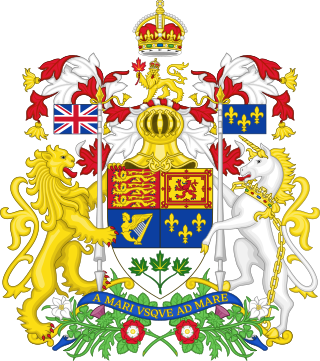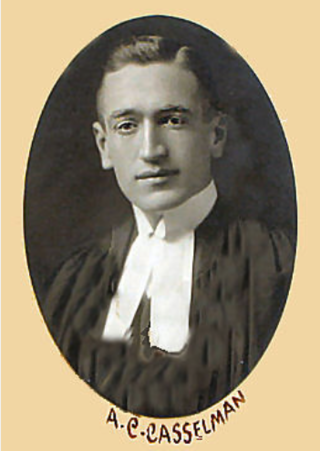There have been various groups in Canada that have nominated candidates under the label Labour Party or Independent Labour Party, or other variations from the 1870s until the 1960s. These were usually local or provincial groups using the Labour Party or Independent Labour Party name, backed by local labour councils made up of many union locals in a particular city, or individual trade unions. There was an attempt to create a national Canadian Labour Party in the late 1910s and in the 1920s, but these were only partly successful.
Liberal-Progressive was a label used by a number of candidates in Canadian elections between 1925 and 1953. In federal and Ontario politics there was no Liberal-Progressive Party, as such. The term generally referred to candidates endorsed by Liberal and Progressive constituency associations or to individual candidates who claimed the label, sometimes running against a straight Liberal or straight Progressive candidate. In Manitoba, a party existed with this name provincially, and Liberal-Progressives ran federally in Manitoba under the leadership of Robert Forke, with the support of the Liberal Party.

The United Farmers of Alberta (UFA) is an association of Alberta farmers that has served different roles in its 100-year history – as a lobby group, a successful political party, and as a farm-supply retail chain. As a political party, it formed the government of Alberta from 1921 to 1935.

The 1926 Canadian federal election was held on September 14, 1926, to elect members of the House of Commons of Canada of the 16th Parliament of Canada. The election was called after an event known as the King–Byng affair.
Humboldt was a federal electoral district in Canada, that was represented in the House of Commons of Canada from 1904 to 1953. When it was created in 1903, it was part of the Northwest Territories. When Saskatchewan became a province in 1905, Humboldt riding was in that province. It was abolished in 1952 when it was redistributed into Humboldt—Melfort, Mackenzie and Rosthern ridings.
Swift Current—Maple Creek was a federal electoral district in Saskatchewan, Canada, that was represented in the House of Commons of Canada from 1917 to 1988.
Souris was a federal electoral district in the province of Manitoba, Canada, that was represented in the House of Commons of Canada from 1904 to 1953.
Neepawa was a federal electoral district in Manitoba, Canada, that was represented in the House of Commons of Canada from 1917 to 1949.
Mackenzie was a federal electoral district in Saskatchewan, Canada, that was represented in the House of Commons of Canada from 1904 to 1997.
Ewan Alexander McPherson was a politician in Manitoba, Canada. He served in the House of Commons of Canada from 1926 to 1930. He was also a member of the Legislative Assembly of Manitoba from 1914 to 1920 and from 1932 to 1936, and served as a cabinet minister in the government of John Bracken.

The 14th Canadian Parliament was in session from 8 March 1922 until 5 September 1925. The membership was set by the 1921 federal election on 6 December 1921, and it changed only somewhat due to resignations and by-elections until, due to momentary confusion among the MPs, it lost a money vote and was dissolved, causing the 1925 election.

Arza Clair Casselman, was a Canadian lawyer and political figure in Ontario, Canada. He represented Grenville in 1921 and then Grenville—Dundas from 1925 to 1958 in the House of Commons of Canada as a Conservative and later Progressive Conservative member.

Arthur Meighen was a Canadian lawyer and politician who served as the ninth prime minister of Canada from 1920 to 1921 and from June to September 1926. He led the Conservative Party from 1920 to 1926 and from 1941 to 1942.
Henry George Leader was a politician, farmer, and cattle breeder from Manitoba, Canada.
Calvert Charlton Miller,, was a Canadian lawyer, politician and jurist.
Joseph-Théodule Rhéaume was a Quebec politician, lawyer and judge.

The article is the electoral history of Arthur Meighen, the ninth prime minister of Canada.

This article is the electoral history of William Lyon Mackenzie King, the tenth Prime Minister of Canada. A Liberal, he was Canada's longest-serving prime minister, with three separate terms as prime minister, for a total of 21 years and 154 days. He defeated Prime Ministers Arthur Meighen and R.B. Bennett at different times, and was succeeded by Prime Minister Louis St. Laurent in 1948.